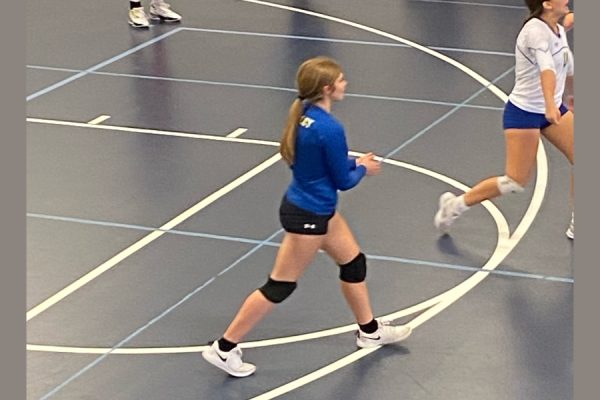Lack of sleep common among teens
IMAGE / Ashley Harroun
Senior Katelyn Bleau (l to r), sophomore Stephanie Lane, and senior Skylar Thames agree that a lack of sleep affects their moods all day.
High school students don’t get enough sleep each night.
According to a small survey of 13 students conducted by The Eclipse, upperclassmen only get six and a half hours of sleep per night, on average, while underclassmen only get five hours and 20 minutes of sleep.
Overall, students report that they only get an average of six hours each night.
Mrs. Amy Graham, health teacher, said that high school students should get around nine hours of sleep a night, which is more than what most are getting.
Graham said the lack of sleep can negatively affect students throughout their day.
“I most definitely notice a difference. Kids that get enough (sleep) concentrate more,” Graham said. “Those who don’t get enough are more difficult to deal with.”
Graham said sleeping is similar to charging a phone. If you only partially charge your phone, the battery dies in a short amount of time.
Agreeing with Graham, sophomore Stephanie Lane said sleep plays a big role in her state of mind.
“The amount of sleep I get makes life a little difficult,” Lane said.
I get very irritated when I feel like I don’t get enough sleep. I eventually shake it off, but those sleepless nights really affect my daily activities.
— Skylar Thames, senior
She’s not the only student who feels their sleep impacts their life in a big way.
Senior Skylar Thames also believes lack of sleep negatively impacts her life.
“I get very irritated when I feel like I don’t get enough sleep,” Thames said. “I eventually shake it off, but those sleepless nights really affect my daily activities.”
A couple of things that impact teens’ sleep schedules are homework and social media.
According to the survey, students spend, at minimum, one and a half hours studying or doing homework each night while they spend at least double the amount of time on social media.
Students reported that they spend at least three hours on social media each night.
Senior Katelyn Bleau said, “I’m the type of person where I have to finish my homework before sleeping. I can’t just not do my homework. With that being said, homework, on top of working, has a great effect on my sleep.”
The amount of homework I have affects the amount of sleep I get by keeping me up late sometimes or stressing me out to the point where I can’t sleep very easily.
— Lexy Cole, freshman
Freshman Lexy Cole’s sleep is also affected by the amount of homework she has each night.
Cole said, “The amount of homework I have affects the amount of sleep I get by keeping me up late sometimes or stressing me out to the point where I can’t sleep very easily.”
Each student surveyed said that they needed more sleep. Not one person said they were happy with how much sleep they got.
Junior Megan Millinkov feels that after school she doesn’t always have the energy to do her homework.
“Sometimes I feel too tired to work on it if there’s a surplus of it,” Millinkov said, “and I have other things to do after school.”
For Graham, students who get the recommended amount of sleep will be better off. She said well-rested students are better able to perform at sports and in their schoolwork.
Many students claim that there is no possible way they can get more sleep, but Graham recommends setting a bed time.
Graham also said students simply need to turn off their phones.
Her advice to students is simple: “Decrease screen time, especially the hours before they go to bed.”

Sophomore
Birthday: May 20, 2001
Extracurricular activities: Student Council
Interests: I love animals, reading, drawing, and listening to music
...
















